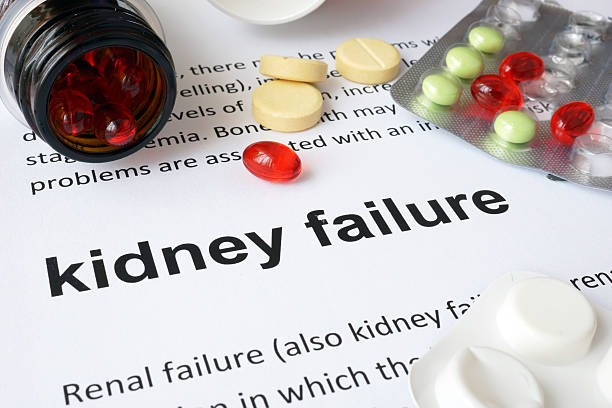The World’s Greatest Places of 2024 – Your Dream Destinations!
Best Airline Rewards Programs for 2024: Enjoying Travel Perks
How to Choose the Right Air Fryer for Your Kitchen?
Top 5 Plants You Should Never Lack For Your Mental Wellness
Brainwaves: Is The Subconscious Mind Receptive Under Lambda Waves?
How to Meditate at Home: A Beginner's Guide
Researching Natural Treatment Strategies for Kidney Disease
With millions of people worldwide living with kidney disease, understanding natural treatment strategies is crucial for patients who want to improve their quality of life. Exploring these strategies can provide valuable insights into a holistic approach to health and equip those affected with knowledge that can complement conventional medical treatments.
With millions of people worldwide living with kidney disease, understanding natural treatment strategies is crucial for patients who want to improve their quality of life. Exploring these strategies can provide valuable insights into a holistic approach to health and equip those affected with knowledge that can complement conventional medical treatments.

Understanding Kidney Disease
Kidney disease is characterized by a gradual loss of kidney function, which can lead to serious health complications if not effectively treated. According to the National Kidney Foundation, chronic kidney disease (CKD) affects approximately 10% of the world's population. Early detection and treatment are essential to slow disease progression and maintain overall health.
Dietary Modifications
Diet plays a vital role in the treatment of kidney disease, as certain nutrients can ease or worsen symptoms. A kidney-friendly diet generally includes:
- A low sodium intake can reduce blood pressure and fluid retention.
- Controlling protein intake to minimize kidney burden.
- Limiting foods rich in phosphorus to prevent bone and heart problems.
- Increasing the consumption of fruits and vegetables due to their antioxidant properties.
According to a 2023 study published in the Journal of Renal Nutrition, the Mediterranean diet may protect kidney function because it emphasizes plant-based foods, healthy fats, and lean protein.
Herbs and nutritional supplements
Herbs and nutritional supplements can help treat kidney disease. Some widely used options are:
- Turmeric: Known for its anti-inflammatory properties, it helps relieve kidney inflammation.
- Ginger: It can aid digestion and relieve nausea, a common symptom in people with kidney disease.
- Omega-3 fatty acids: Found in fish oil, they can support cardiovascular health, which is often impaired by kidney disease.
- Coenzyme Q10: A 2022 study in the American Journal of Clinical Nutrition found that an antioxidant may help improve kidney function.
It is important to consult a doctor before taking herbs or supplements to avoid possible interactions with prescribed medications.
Hydration and fluid management
Adequate hydration is essential for kidney health because it helps flush out toxins and prevent stone formation. However, fluid intake must be adjusted individually, especially for patients with advanced kidney disease. According to the Kidney Disease: Improving Global Outcomes (KDIGO) guidelines, patients should:
- Monitor fluid intake to avoid overhydration or dehydration.
- Adjust fluid intake based on daily activities and climate conditions.
- Consult a healthcare provider to determine appropriate fluid restrictions.
- Balancing fluid intake is a delicate aspect of kidney disease treatment that requires careful consideration and professional guidance.
Exercise and Lifestyle Changes
Regular physical activity and lifestyle changes are essential for treating kidney disease. Exercise can improve overall health and support kidney function by:
- Improving cardiovascular health, which is essential for kidney function.
- Maintaining a healthy weight and reducing the risk of diabetes and high blood pressure.
- Boosting energy levels and mental health.
The World Health Organization recommends that adults get at least 150 minutes of moderate-intensity exercise per week, adjusted as needed based on individual health and abilities.
Mind-body practices
Mind-body practices such as yoga, meditation, and tai chi can provide additional support for people with kidney disease. These practices can help by:
- Reducing stress and anxiety that can affect kidney health.
- Improving sleep quality, which is essential for physical recovery and maintaining health.
- Increasing emotional resilience and overall well-being.
Incorporating these practices into your daily life can provide holistic benefits and help take a balanced approach to treating kidney disease.
In summary, research into natural treatment strategies for kidney disease can provide patients with additional tools to support their health in conjunction with traditional treatments. By considering dietary changes, herbal remedies, lifestyle modifications, and mind-body exercises, individuals can develop a comprehensive approach to treating their condition. While these strategies may not cure the disease, they do offer valuable opportunities to improve quality of life and well-being.











